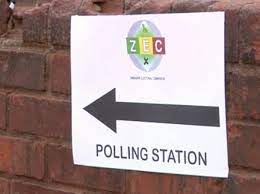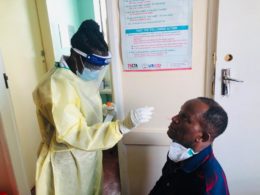Is Zimbabwe still in first wave of Covid-19 and will a second-wave strike the country?
Conclusion: Inconclusive
Health officials have defined the first wave to imply a rising number of sick individuals, a defined peak, and then a decline.
This suggests that even during a lull, future outbreaks of the disease are possible.
To say one wave has ended, the virus would have been brought under control and cases fell substantially.
In Zimbabwe, September health officials believed the country’s high Covid-19 recovery rate which stood at 77 percent was a ‘hopeful’ sign against the coronavirus and that people had adopted good behaviour needed to fight the fast-spreading virus.
In October, Zimbabwe`s Covid-19 recovery rate shot up to 95 percent after more than 1000 people recovered from the respiratory disease in one day.
Health experts said for a second wave to start, there should be a sustained rise in infections.
Zimbabwe has now been seeing a rise in the number of Covid-19 cases, with authorities recording double digits.
As of October 18, 2020, 37 new cases and no deaths were reported taking total number of confirmed cases in Zimbabwe to 8 147 while the seven-day rolling average rose to 19 from 14.
As of October 19, 2020, 12 new cases were reported and one death while the seven day rolling average for new cases went up to 20 from the previous 19.
The total number of Covid-19 cases nationally went up to 8 159, with 7 683 recoveries and 232 deaths.
Bulawayo province has been recording a majority of the new cases and has the highest number of active cases countrywide.
United Bulawayo Hospital (UBH)’s Acting Chief Executive Officer (CEO), Dr Narcisius Dzvanga said as health officials they could not explain the rise in numbers but suggested Zimbabwe was still in the first wave
“If I’m to focus on the current trend, I don’t think we are going to be overwhelmed (as hospitals) yet we can’t explain how we are seeing a rise in the numbers (of confirmed Covid-19 cases) daily but the deaths are remaining more less on average,” he said.
“But we are not seeing the scenarios that we see on international news and the current scientists including myself still can’t figure out what is protecting us but we thank God for that so it is very unlikely that we will be overwhelmed.”
Dr Dzvanga, however, noted the Covid-19 epidemic has a system of recurring with another upward surge that was seen in countries such as the United Kingdom and Italy.
“We maybe be ok now but come the rainy season when it’s humid, Covid-19 may strike, so we don’t want to celebrate too early but we think we will cope,” he said.
“If Ekusileni Medical Centre can take 16 ICU beds, we at UBH can take almost 32 ICU beds, Mater Dei – 18 ICU beds that should be more than enough for a city like ours. I would say yes, we are still in the first wave.”
International news reports and opinion articles suggested that corruption and a lack of health-care infrastructure meant Africa was a “time bomb” waiting to explode when faced with a public health emergency such as Covid-19.
Nevertheless, African countries managed to exceed expectation as scientists are still trying to figure out the relatively low coronavirus outbreaks in Africa while different countries have taken stern efforts to contain Covid-19.
Bulawayo’s Acting Provincial Medical Director, Dr Welcome Mlilo, however, warned there could be a resurgence of coronavirus infections should people fail to remain vigilant.
“I would argue we are entering a second wave due to the high numbers that are recorded this week (in Zimbabwe). Previously we were recording single-digit cases, such as one, two, three, sometimes even zero cases on different days but of late, we are going into double figures. On Monday we had the highest,” he pointed out.
Dr Mlilo said health authorities had to monitor the trend and see whether the next coming weeks would bring a sustained rise in infections.
“We need to see what will happen in the coming weeks, check if there is a susceptible rise of infections. We will continue checking the numbers to see if they remain high or this rise will be just for this week so this is what we will monitor,” said the acting PMD.
Is Zimbabwe still in first wave of Covid-19 and will a second-wave strike the country?
Health officials have defined the first wave to imply a rising number of sick individuals, a defined peak, and then a decline.
This suggests that even during a lull, future outbreaks of the disease are possible.
To say one wave has ended, the virus would have been brought under control and cases fell substantially.
In Zimbabwe, September health officials believed the country’s high Covid-19 recovery rate which stood at 77 percent was a ‘hopeful’ sign against the coronavirus and that people had adopted good behaviour needed to fight the fast-spreading virus.







